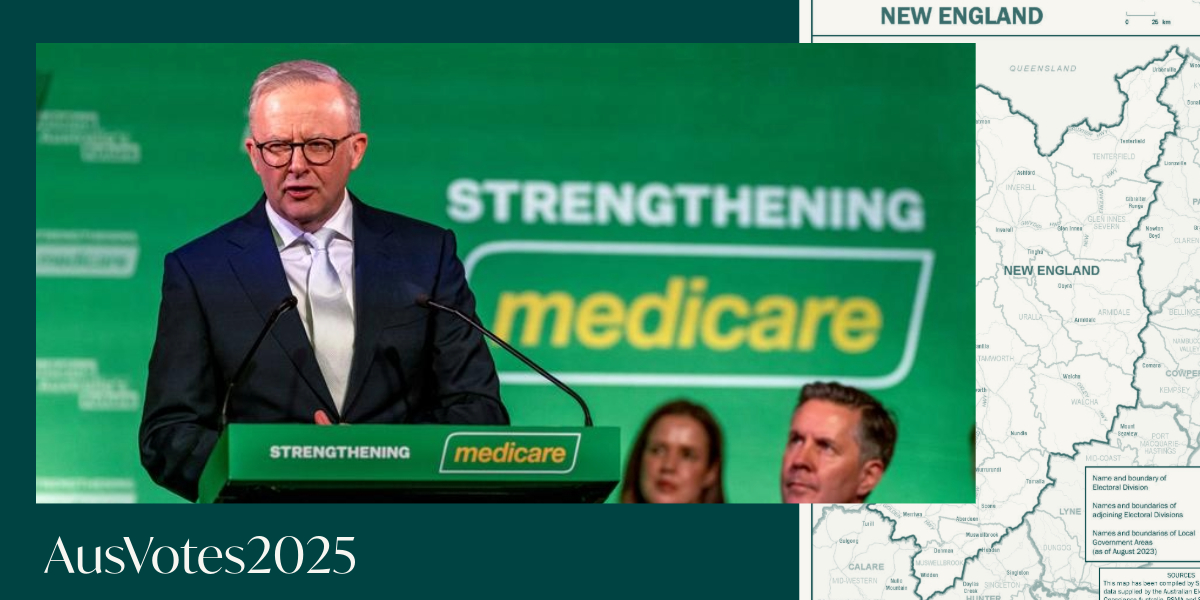A landmark bipartisan pledge to invest in Medicare aims to ensure nine in 10 visits to the doctor will be free within the decade, with a bigger boost for rural doctors.
Prime Minister Anthony Albanese has unveiled his government’s centrepiece election promise, committing $8.5 billion to arrest the decline of bulk billing. Opposition Leader Peter Dutton has matched the pledge, promising a $9 billion investment, including a $500 million plan to boost mental health services.
The Australian Medical Association (AMA) has welcomed the commitment but warns it is not a silver bullet.
“In some areas, the cost of providing care will still be too great,” AMA president Danielle McMullen warned.
“It is quite difficult to see how it will make a huge increase in some of our central metropolitan areas.”
“I do hope this will make a difference in rural and regional communities and in our areas of socioeconomic disadvantage, where GP’s have been really trying as hard as they can to keep those costs down and we’ll be able to bulk bill more patients,” she said.
The bulk billing incentives are scaled, with doctors being paid more to bulk bill in rural and remote areas.
Dr McMullen also called for kindness and respect to reception staff, as these reforms will not come into effect immediately, and they may not mean that all practices will bulk bill.
The pledges have been broadly praised by the Primary Care Business Council, which said the funding would help sustain existing practices and support GPs in disadvantaged areas.
“This funding will mean more practices will remain open, more doctors will choose to be GPs, and more GPs will choose to work in disadvantaged areas,” council president Ged Foley said.
Australia’s bulk-billing rate has dropped significantly, with Cleanbill data showing a decline from 35.7 per cent in early 2023 to 20.7 per cent at the start of 2025. Labor’s plan includes an incentive payment for every GP practice to bulk bill, which Albanese said would give about 4800 practices financial security to keep visits free.
Health Minister Mark Butler said modelling showed there would be 20 million additional free GP visits, while a new training program in 2026 would deliver 2000 new GPs annually. Labor has also pledged 400 new scholarships for nurses and midwives, and reforms to GP training that extend employment benefits to GPs in training and provide more places.
The Australian College of Rural and Remote Medicine (ACRRM) has welcomed the government’s focus on regional healthcare, particularly the expansion of Rural Generalist training places and bulk billing incentives.
“As Australia’s only College focused on rural, remote and First Nations healthcare, we have long advocated for investment to support communities most in need,” ACRRM president Rod Martin said.
“The promise to spend about $8 billion over four years to eliminate out-of-pocket costs for patients is history making.”
The Armidale based GP highlighted the $265.2 million investment to train future GPs and rural generalists, with a goal of 2000 new registrars per year from 2028.
“The additional funding to help bridge the pay gap for registrars moving from hospital to general practice, and to provide parental and study leave entitlements, is a crucial step in making the specialty more attractive,” he said.
Dr Martin said the new Bulk Billing Practice Incentive Program would enable rural clinics to grow their teams and improve facilities.
“Under this initiative, a standard bulk-billed consultation at a regional or rural practice will almost double, reducing cost barriers and ensuring more affordable access for patients in rural, remote, and First Nations communities,” he said.
Dr Martin emphasised that long-term investment in structured training pathways was critical to improving recruitment and retention in rural healthcare.
“This funding is a long-overdue step toward addressing the historical shortfall in rural healthcare investment,” he said.
“With so many factors disproportionately affecting non-metropolitan Australians, it is essential that access to high-quality RG care is made more affordable and sustainable.”
The pledges signal an intensification of healthcare commitments ahead of the federal election, due by May 17 but expected to be called for April 12, with health care emerging as a key issue for both major parties.
Follow all the New England Times coverage of the federal election here or have your say on Engage
See more about the race in New England here
See more about the race in Parkes here


